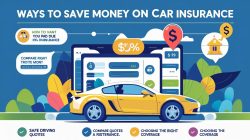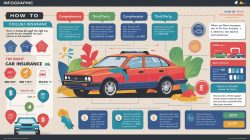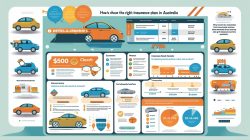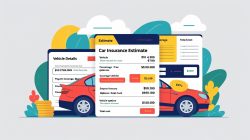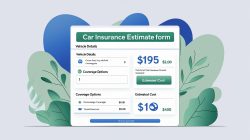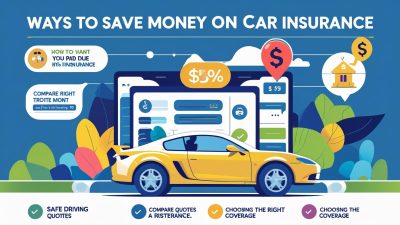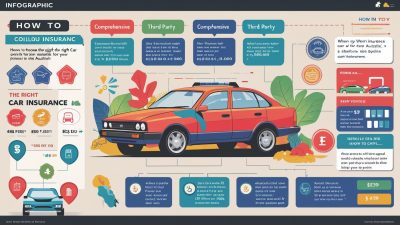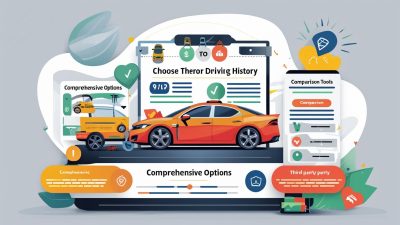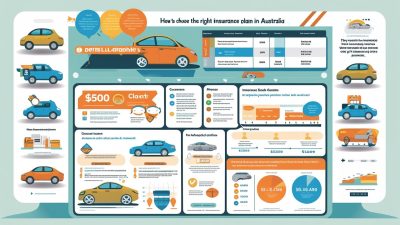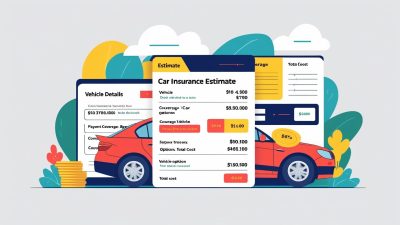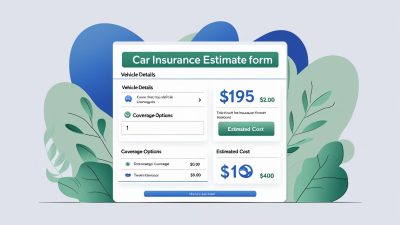How to Compare Car Insurance Quotes in Australia for the Best Rates
Bloggerbanyumas.com – When it comes to finding the best car insurance in Australia, the key lies in making an informed decision. With a variety of providers offering different policies, features, and coverage options, comparing car insurance quotes is crucial in ensuring that you secure the best rates for your specific needs. Whether you are a new driver or someone looking to switch providers, understanding how to effectively compare car insurance quotes can save you money and provide peace of mind on the road.
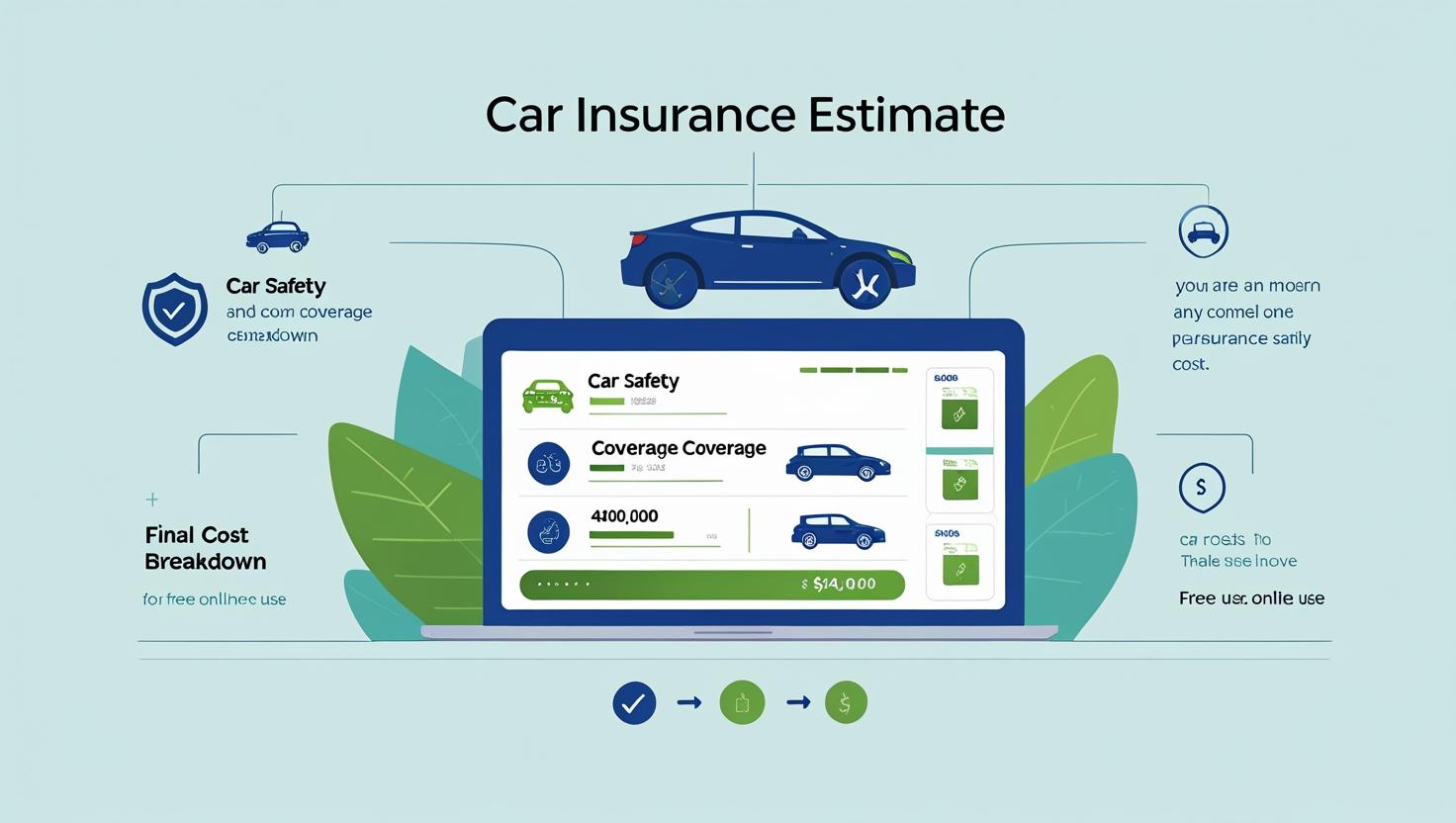
In a competitive insurance market like Australia’s, premiums can vary significantly from one insurer to another, and even more so based on individual driving circumstances. The cost of car insurance depends on a variety of factors such as the type of coverage, the make and model of your vehicle, your location, and your driving history. As such, it’s essential to approach the comparison process with careful consideration, focusing on the most important aspects that will help you find the best deal.
Understanding the Key Factors That Impact Car Insurance Quotes in Australia
Before diving into comparing quotes, it’s essential to understand the key factors that affect the rates you are offered. Different insurance providers calculate risk and coverage in unique ways, and being aware of these factors will give you a more comprehensive view of the pricing structure.
1. Type of Coverage
The first and most significant factor influencing the price of your car insurance is the type of coverage you choose. In Australia, car insurance typically comes in three forms:
- Comprehensive Insurance: This covers damage to your vehicle, other vehicles, and property in the event of an accident. It also includes theft, vandalism, and damage caused by natural disasters. Comprehensive insurance provides the most protection but is generally the most expensive.
- Third-Party Insurance: This is the most basic coverage, protecting you from liability if you damage someone else’s property or injure someone in an accident. However, it does not cover any damage to your own car, which makes it cheaper than comprehensive insurance.
- Third-Party, Fire, and Theft Insurance: This policy offers third-party coverage and additionally protects your car against fire and theft. It’s a middle ground between comprehensive and third-party insurance, offering more protection than basic third-party insurance, but not as much as comprehensive coverage.
Choosing the right type of insurance is essential in determining your overall cost. A comprehensive policy will naturally be more expensive, while third-party options are more affordable, but with limited protection.
2. Your Vehicle’s Make and Model
Insurance companies assess the risk associated with insuring a particular make and model of vehicle. Luxury cars, high-performance vehicles, and cars that are expensive to repair often incur higher premiums. On the other hand, cars that are cheaper to repair and have higher safety ratings generally attract lower premiums.
For example, a Toyota Corolla would typically cost less to insure than a high-end sports car like a Porsche 911, due to the repair costs, safety features, and likelihood of theft associated with each model. When comparing car insurance quotes, ensure that the quote reflects the vehicle you own, as different insurers may assess the value and risk associated with your car differently.
3. Your Location
Where you live plays a significant role in determining your car insurance premium. Insurers often assess the level of risk based on the area where the car is parked, considering factors such as crime rates, accident statistics, and weather conditions.
For instance, urban areas with higher traffic densities and a higher likelihood of accidents tend to have higher premiums. Conversely, living in rural or low-traffic areas may result in lower insurance costs. Be sure to account for your location when comparing car insurance quotes, as policies in major cities like Sydney or Melbourne will typically be higher than in regional areas.
4. Your Driving History
Your driving history directly impacts the cost of your car insurance. Insurers look at factors such as:
- Your claim history: If you’ve had multiple claims in the past, insurers may see you as a higher risk, leading to higher premiums.
- Your driving record: A history of traffic violations or accidents could increase the cost of your premium, while a clean driving record may earn you discounts.
- Your age and experience: Younger, less experienced drivers are often charged higher premiums due to the increased risk associated with their driving habits.
To get the best rates, maintain a clean driving record and, if possible, take advantage of any no-claims bonuses or discounts offered by insurers.
5. Excess Amount
The excess is the amount you need to pay out of pocket in the event of a claim before the insurer pays the rest. Insurance providers often offer the option to increase the excess in exchange for lower premiums. While this can reduce your premium in the short term, it’s essential to ensure that the excess is affordable in case you need to make a claim.
When comparing car insurance quotes, check the excess amount for each provider. A higher excess can lower your premium, but it may result in higher out-of-pocket costs if you need to claim.
How to Compare Car Insurance Quotes Effectively
Now that you understand the factors that influence car insurance rates, the next step is to compare quotes effectively. Here’s a step-by-step guide to ensure you get the best deal.
1. Use Online Comparison Tools
The easiest way to compare car insurance quotes in Australia is through online comparison tools. Websites like Canstar, Compare the Market, and Finder allow you to compare a wide range of insurance providers and their policies. These tools gather quotes from multiple insurers based on your personal information and provide you with a list of available options.
When using comparison tools, make sure to enter accurate information, including your vehicle details, driving history, and coverage preferences, to receive the most accurate quotes. Also, keep in mind that these tools may not cover every insurer, so it’s also worth visiting some insurers’ websites directly.
2. Evaluate the Inclusions and Exclusions
When comparing quotes, pay attention to the inclusions and exclusions for each policy. Some policies may appear cheaper but offer fewer benefits, while others may include additional perks such as roadside assistance, car hire, or windscreen repair. Assess the coverage each policy provides and ensure it aligns with your needs.
For example, while a third-party policy might be cheaper, it might not cover incidents such as theft or damage to your own vehicle. If these are important to you, you may need to opt for a more comprehensive policy, even if it means paying a slightly higher premium.
3. Review Customer Service and Claims Handling
Customer service and claims handling are often overlooked when comparing car insurance quotes, but they are crucial aspects of the insurance experience. Check online reviews and ratings to see how well the insurer handles customer inquiries, policy changes, and claims. A provider with excellent customer service can make a significant difference when you need to make a claim or resolve any issues.
Look for insurers with fast claims processing, accessible customer support, and a reputation for handling claims fairly and efficiently. You can find customer reviews on insurance comparison websites or independent review platforms like ProductReview.com.au.
4. Take Advantage of Discounts and Bundling Options
Many car insurance providers offer discounts for various reasons. Common discounts include:
- No-claims discount: If you haven’t made a claim in a certain number of years, you may qualify for a discount.
- Multi-policy discount: Bundling your car insurance with other types of insurance (e.g., home or life insurance) can lead to significant savings.
- Low-mileage discount: If you don’t drive much, some insurers offer discounts based on low annual mileage.
When comparing car insurance quotes, make sure to check for any applicable discounts that can lower your premiums. Additionally, some insurers may offer perks such as loyalty rewards or discounts for using specific payment methods.
5. Check the Policy’s Reputation and Financial Stability
Lastly, make sure to research the insurer’s financial stability and reputation in the market. Car insurance is a long-term commitment, so it’s essential to choose a provider that is financially secure and has a track record of fulfilling its claims obligations. Look for insurance providers with high ratings from agencies like S&P Global or Moody’s.
A strong reputation for financial stability ensures that the insurer will be able to cover claims when needed, providing peace of mind that your policy is backed by a trustworthy company.
Top Car Insurance Providers in Australia for 2025
When comparing car insurance quotes, it’s helpful to be aware of some of the top-rated providers in Australia for 2025. These providers are recognized for their competitive pricing, extensive coverage options, and excellent customer service:
- NRMA Insurance – Known for comprehensive coverage and exceptional customer service.
- AAMI Insurance – Offers affordable and reliable car insurance with a streamlined claims process.
- Allianz Australia – Offers a broad range of options with a strong reputation for claims handling.
- Budget Direct – Provides budget-friendly coverage with flexible policy options.
- Suncorp Insurance – Well-regarded for offering comprehensive policies with great customer support.
Comparing car insurance quotes in Australia is a vital step in ensuring that you choose the best coverage for your vehicle. By understanding the factors that influence premiums, using comparison tools, and evaluating the details of each policy, you can make an informed decision that aligns with your needs and budget. Keep in mind the importance of customer service, claims handling, and discounts when assessing different options. With the right approach, you can secure car insurance that provides the protection you need without breaking the bank.

